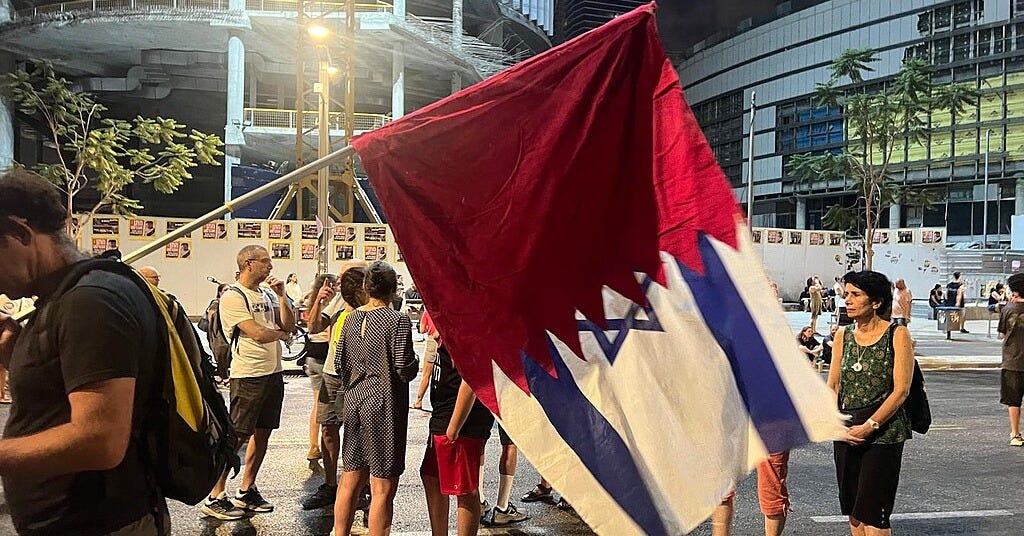Israel’s Doha Strike: A Gulf Diplomatic Earthquake
An unprecedented attack shatters Qatar’s mediator role and shakes U.S. influence.
In a stunning departure from precedent, Israel carried out an airstrike in Doha targeting Hamas negotiators. The attack shattered Qatar’s long-standing role as a mediator between Islamist factions and the West. Doha, which has often balanced its identity as a U.S. ally with its ties to Hamas and the Muslim Brotherhood, suddenly finds its credibility in tatters.
Image: Israel–Qatar flags by Prachatai, CC BY-NC-ND 2.0.
The regional implications are vast. For decades, Qatar has used its diplomatic clout to punch above its weight, hosting negotiations from Afghanistan to Sudan. Israel’s strike undermines that model, raising doubts about whether Qatar can continue as a trusted broker. It also puts Washington in a bind: the U.S. has relied on Qatari mediation, even as it hosts America’s largest military base in the region.
For Israel, the strike signals a new doctrine—no sanctuary for adversaries, even on friendly soil. For the Gulf, it introduces a destabilizing precedent: disputes once managed through quiet channels may now be resolved through open force. The attack has already unsettled Saudi and Emirati officials, who fear that escalation in Doha could ripple through the Gulf.
Our Take: Israel’s Doha strike has exposed a fragile balance in Gulf diplomacy. The thin red line is whether this moment forces a recalibration of regional norms—or ignites a wider cycle of retaliation and mistrust.

